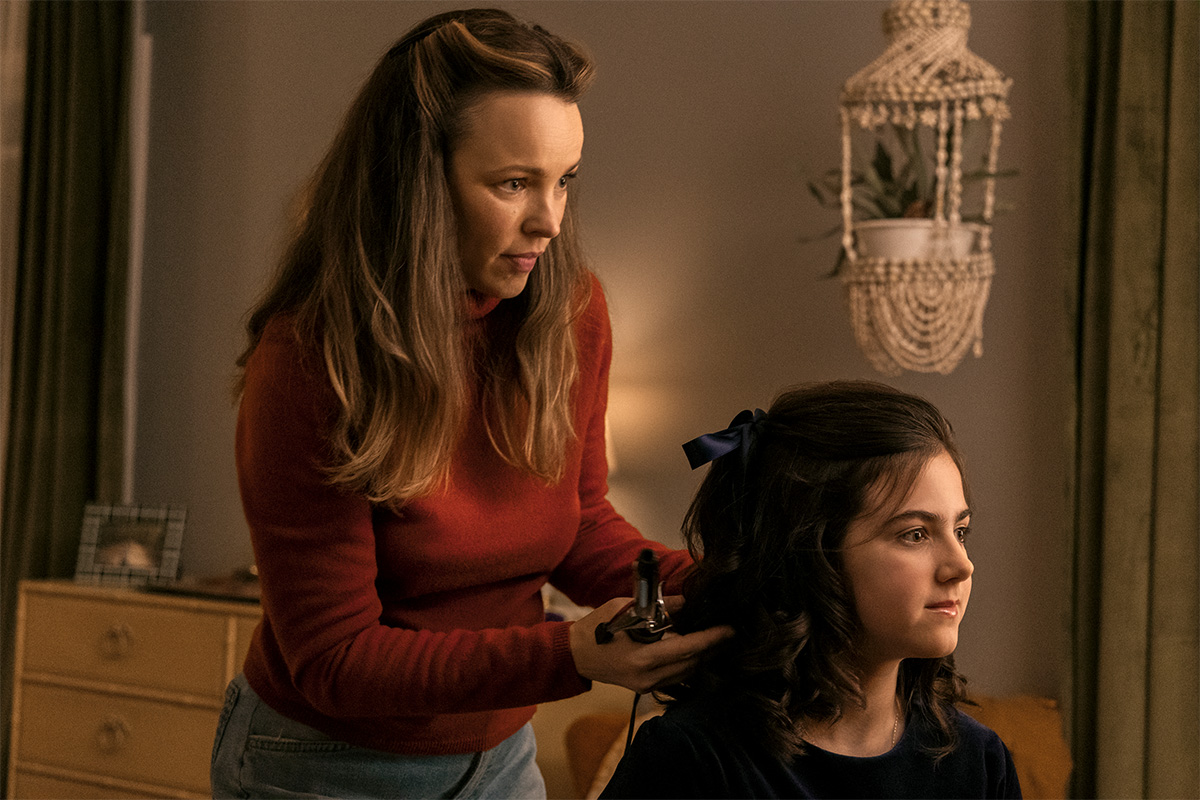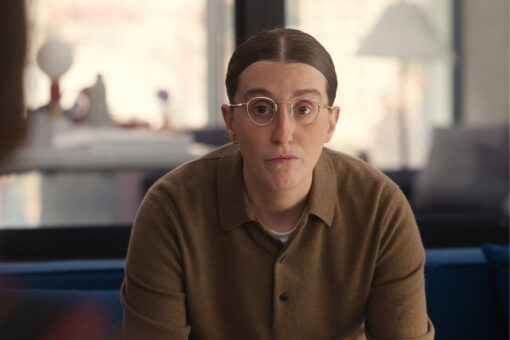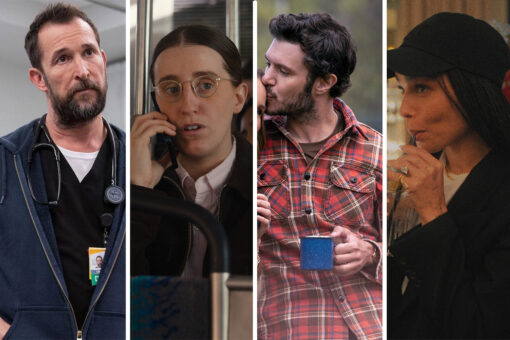After more than 50 years of young girls reading it under the covers at night with a flashlight, Judy Blume’s iconic 1970 coming of age novel “Are You There God? It’s Me, Margaret?” is finally a movie. Watching the film and rereading the book in preparation for this highly-anticipated moment, I saw myself in this story about a young girl’s search for faith.
When I think of this book, I imagine said young girl kneeling on her bedroom floor, clasped hands raised and head lowered, seeking answers from a higher power. This image is the same one I had when I first read the book growing up — an image that’s now the same onscreen in the new film.
It is also the image I have of myself trying to talk to God when I was around the age of this preteen protagonist.
“Are You There God? It’s Me, Margaret?” is set in the 1970s. It follows Margaret Simon (played in the film by Abby Ryder Forston), an 11-year-old girl whose family moves from New York City to New Jersey suburbia. The child of an interfaith couple — a Jewish dad and a Christian mom — Margaret was raised without any religious affiliation, though her paternal grandmother and formidable bubbe Sylvia (played by Kathy Bates) does her best to ensure Margaret knows her Jewish background. Meanwhile, Margaret has never met her maternal grandparents; they cut off communication because they disapproved of Margaret’s mother’s marriage to a Jewish man.
Margaret Simon and I are alike in that we both experienced adolescence in the suburbs of New Jersey (perhaps our most character-defining quality). One of my favorite moments takes place at the start of the film, when Margaret says, “Please, help me God, don’t let New Jersey be too horrible.” (I remember similar pleas — not necessarily for New Jersey itself to be less horrible, but for growing up in it to lighten up a little.) But maybe even more importantly, Margaret and I relate when it comes to feeling like we don’t wholeheartedly connect with any religion.
While her religious makeup is ambiguous, Margaret talks to God in private. She notes that her mom once told her, “God is a nice idea. He belongs to everybody.” Margaret talks to God, whom she refers to as he/him, for advice or to place requests. The most frequent asks are for her boobs to grow and her period to arrive. Ironically, but also appropriately, she looks to God as her puberty navigation guide.
Unlike Margaret, I was not raised by an interfaith couple. In fact, my parents are both Jewish and have been divorced all my life. I attended Hebrew school for years and was bat mitzvahed. But I couldn’t always get behind the teachings; I didn’t like that there were so many rules, and I took issue with how stories in the Torah seemingly sidelined women.
Yet as a third-generation American on both sides, I hold Jewish holidays, Jewish food and the passed-down stories of my Jewish family dear as my only real heritage. So I have always kept my Jewish identity close.
In some ways, Margaret provided a model for how to solve the conflict between my sex and my faith. I bear some resentment for some elements around Judaism — specifically, some scholars’ notions of purity. Certain denominations forbid women from reading from the Torah because they menstruate and are considered “impure” or “dirty.” My mom was not permitted to read when she was bat mitzvahed in the early 70s, yet I was in 2010 at my Reform temple (ironically, I had my period on the day of my bat mitzvah). But Margaret talks directly to God about all the womanly changes she’s experiencing; she finds a way to make religion and womanhood compatible.
“Are You There God? It’s Me, Margaret” deals with faith beyond Margaret’s late-night holy chit-chats. Over the course of the school year in which the story takes place, Margaret is working on a school project where the assignment is to focus on something meaningful. She chooses to focus on religion: “I think it’s time for me to decide what to be? I can’t go on being nothing forever, can I?” She experiments by going to temple with her grandma, attending many different churches with her girlfriends from school and even, at one point, giving confession a try. It’s especially beautiful to watch a young girl explore religion so earnestly.
Revisiting Margaret now as opposed to when I was a teen reading the book in the early 2010s, I thought about how such a search today might reveal religious practices outside of Judaism or Christianity: astrology? Witchcraft? I’ve watched my mom, who grew up in the ‘70s, find more faith in her tarot readings than she ever did growing up Jewish. I wonder now if a Gen Z Margaret would be into birth charts. Would she still need to talk to God?
In a way, I am a sort of Gen Z Margaret — a curious mind amongst a generation full of devout alternatives. My search for faith also ventured towards astrology and tarot, though I couldn’t get behind any one organizing force and still yearned for a God-like presence. (I guess I want to feel what Beyoncé feels when she talks about God protecting her.)
At so many moments in my life, I’ve found myself saying, “Are you there, God?” Like Margaret, I did it in my preteen years and asked for things like popularity, for boys to like me and for my body to look a certain way (that was a big one during the 2010s skinny–obsessed Tumblr era). And though I’ve never truly felt anything in return, I still find myself talking to God in times of uncertainty and fear. Now, the conversations are deeper. I’ve called out to God in times of trauma and tragedy. I’ve begged for relief from pain and dark thoughts.
Margaret’s journey is compelling because it’s honest; it’s deeply personal and, in its specificity, it becomes universal. In Margaret’s quest for faith, I related to the search for something larger than oneself. “Are You There God? It’s Me, Margaret” takes place at a specific age in a girl’s life. Her search for God is juxtaposed with the almost universally confusing experience of puberty.
Like anyone, Margaret and I have little power over how our bodies develop or if our families get along — or even the kindness of New Jersey. Ultimately, we look to God for someone to talk to during big moments of change or when existential questions arise. God is there when we need a friend, or when we want to believe there is someone in charge, that all of this — how a life should be led, how to choose right from wrong — is not random. Like Margaret’s mom says, “God is a nice idea.”



